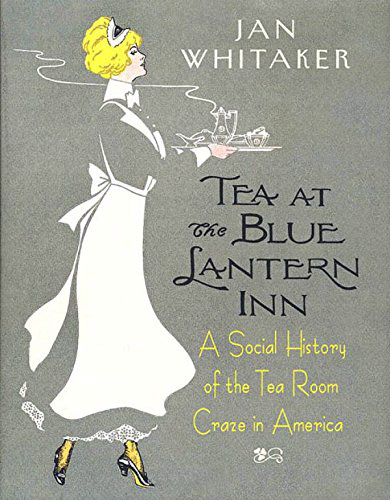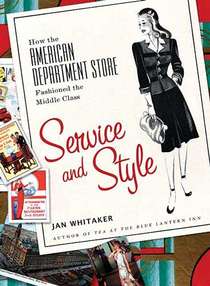 Before the Civil War roadside drinking and eating places on the outskirts of cities were visited by people who enjoyed making them the destination of a leisurely buggy ride. In winter sleighs full of young people from Boston would go to North Cambridge or Arlington for steak dinners and dancing. Although they sometimes drew a rough crowd, such as the pickpockets and grifters who gathered for cattle fairs and races, these places were generally considered respectable.
Before the Civil War roadside drinking and eating places on the outskirts of cities were visited by people who enjoyed making them the destination of a leisurely buggy ride. In winter sleighs full of young people from Boston would go to North Cambridge or Arlington for steak dinners and dancing. Although they sometimes drew a rough crowd, such as the pickpockets and grifters who gathered for cattle fairs and races, these places were generally considered respectable.
As railroads spread across states such as Massachusetts following the war, fares fell and roadhouses drew an undesirable, rowdy crowd. They gradually began to fade away as cities grew. Yet their unsavory reputation lingered and grew more intense with suburbanization in the late 19th century. Minnesota legislated against roadhouses in 1915, and towns around Chicago fought them and often succeeded in having their liquor licenses taken away. Others, however, survived and became legit — for instance Busch’s Grove originally located on the outskirts of St. Louis.
 The same reform fervor that attacked drinking (and prostitution) in roadhouses brought new life to them as they were turned into colonial-style “wayside” tea houses by middle-class women in the teens and 1920s. As a writer for Good Housekeeping magazine observed in 1911, these were just the sort of places to appeal to “quieter folks of good taste.” The most famous example, the Wayside Inn of Sudbury, Massachusetts, was bought in 1923 by Henry Ford to rescue it from its alcoholic past.
The same reform fervor that attacked drinking (and prostitution) in roadhouses brought new life to them as they were turned into colonial-style “wayside” tea houses by middle-class women in the teens and 1920s. As a writer for Good Housekeeping magazine observed in 1911, these were just the sort of places to appeal to “quieter folks of good taste.” The most famous example, the Wayside Inn of Sudbury, Massachusetts, was bought in 1923 by Henry Ford to rescue it from its alcoholic past.
There were risks in opening a teetotalling establishment in an old watering hole. As the proprietor of a Pennsylvania roadhouse converted into the Huckleberry Inn discovered, old customers had a habit of coming by and demanding their accustomed drinks.
Was this the reason why liquor was found at the Nine Owls Tea Room in Pembroke, Massachusetts, when town police raided it in 1927? The Nine Owls, on Mattakeesett street, was run by Elizabeth Buxton, who had moved to town from Somerville with her family in the 1920s. Had it once been a roadhouse? It is not clear whether she founded the tea room or took it over from someone else, or exactly how long she was its proprietor. In 1932, a year after her husband was struck by a car and killed, she advertised for boarders but I have found no trace of her after that date.
 As shown in the accompanying illustration, the Nine Owls eventually reverted to a roadhouse. In this photo, genteel elements from its tea room past such as window boxes, canvas awnings, and flower gardens are missing. A Budweiser sign is prominent. The reputation of the Nine Owls may have been pristine — but to me it has the look of a roadhouse in a Hollywood film noir. Its moodiness reminds me of the image of Casablanca in Palatine, Illinois, scene of a murder in 1949.
As shown in the accompanying illustration, the Nine Owls eventually reverted to a roadhouse. In this photo, genteel elements from its tea room past such as window boxes, canvas awnings, and flower gardens are missing. A Budweiser sign is prominent. The reputation of the Nine Owls may have been pristine — but to me it has the look of a roadhouse in a Hollywood film noir. Its moodiness reminds me of the image of Casablanca in Palatine, Illinois, scene of a murder in 1949.
The Nine Owls was in operation under that name at least until 1970 when its owner, Edwin Mason, was killed in a motorcycle accident. At some later point the building burned down.
© Jan Whitaker, 2011












 It's great to hear from readers and I take time to answer queries. I can't always find what you are looking for, but I do appreciate getting thank yous no matter what the outcome.
It's great to hear from readers and I take time to answer queries. I can't always find what you are looking for, but I do appreciate getting thank yous no matter what the outcome.



Elizabeth Buxton, owner of the 9 Owls Tea Room, remarried to Mr. Babb. She died circa 1960, and her daughter Sue took ownership. It was sold and later destroyed by fire.
I just came across your websites – love them all – tearooms, restaurants and department stores of yore – what could be better! When I saw your roadhouse post I had to poke around a bit to see if you had anything about the Willow Pond Kitchen in Concord. I always thought of it as a roadside joint – it was the last sort of place you would expect to find in Concord. I worked there while in college and graduate school. The inside, despite an earlier fire, was in close to original condition. One day when the ice tea machine broke – it was the most up-to-date piece of equipment in the kitchen by far – the owner said “Well, I guess I got my money’s worth. I bought it 18 years ago and it came with a case of ice tea mix.” Sadly, the National Park Service finally won their battle and the Kitchen is no more.
Great story!
If Good Housekeeping approves, you know it’s respectable.